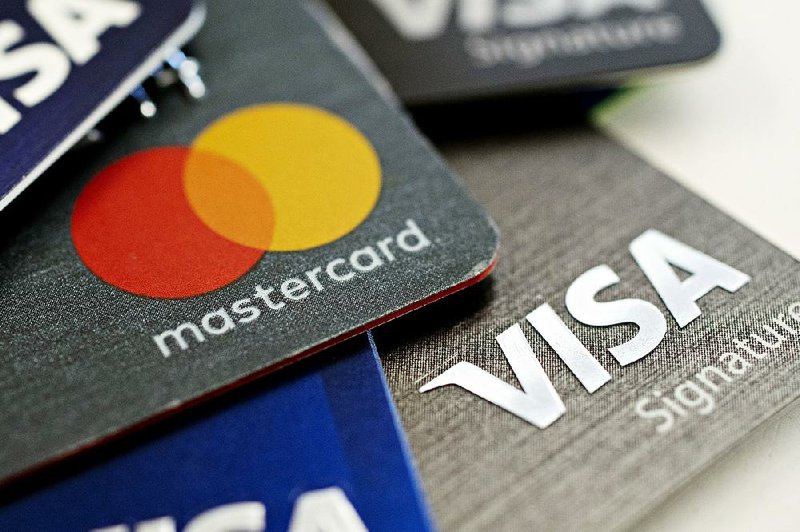Visa Inc. and Mastercard Inc. agreed to pay as much as $6.2 billion to end a long-running price-fixing case filed by merchants over card fees, the largest-ever class-action settlement of an antitrust case.
The total is in line with sums the companies previously set aside to cover the costs of the litigation, including $5.3 billion already held by the court and an additional $900 million reserved earlier this year, as the two sides drew closer to an agreement.
"We view the settlement as a positive for Visa and Mastercard as it hopefully puts this longstanding litigation behind them," Sanjay Sakhrani, an analyst at Keefe Bruyette & Woods Inc., said in a note to clients.
As part of the payment, Visa and Mastercard will use shares owned by banks, including JPMorgan Chase & Co., Citigroup Inc. and Bank of America Corp. The lawsuit is one of many flash points in the battle between retailers and financial firms over the $90 billion that U.S. merchants spend every year on swipe fees.
Mastercard shares rose 1.65 percent to close Tuesday at $220.05 in New York, while Visa's climbed 0.99 percent to $147.63.
"After years of thoughtful negotiation, we are pleased to be able to reach this agreement and move forward in our partnership with merchants to provide consumers convenient, reliable, secure ways to pay," Kelly Mahon Tullier, Visa's general counsel, said in a statement included in a regulatory filing Tuesday.
The dispute began in 2005, when Visa and Mastercard were still owned by banks. Merchants had accused them of violating antitrust laws by illegally inflating swipe fees, or interchange, that merchants pay on every purchase transaction and which banks use to fund consumers' credit-card rewards. The two payments networks have since gone public -- Mastercard in 2006, and Visa in 2008 -- and their shares have soared.
Throughout the litigation, merchants have said that lowering the amount they pay in swipe fees also will benefit their customers in the form of lower prices. Interchange has become costly for retailers who have thin margins, said Mitch Goldstone, president and chief executive officer of ScanMyPhotos.com, one of the suit's most active plaintiffs.
"Although, like any big industry, change comes more slowly than many would like, we already see changes as a result of the earlier" settlement, Goldstone said in an emailed statement. The litigation has "helped fix a broken system and recover billions of dollars for millions of class members."
This isn't the first time a settlement has been reached in the case. In 2013, the parties struck a then-record $5.7 billion deal that was approved by U.S. District Judge John Gleeson, only to have a federal appeals court reject it three years later, ruling that a provision that barred merchants from suing over fees was unfair. The court also said lawyers who represented retailers nationwide didn't do enough to protect their interests.
Gleeson stepped down from the bench in 2016, and the case is now assigned to Judge Margo Brodie.
After tossing out the earlier settlement, the court divided the merchants' claims into two classes, one that focused on monetary damages and the other on making changes to Visa and Mastercard's business practices. Tuesday's settlement is for the class focused on monetary damages.
"The rules relief class negotiations remain outstanding," Chris Donat, an analyst at Sandler O'Neill & Partners, said in a note to clients. "These changes could include reductions in interchange fees. We believe that this ongoing litigation has the greatest potential risk to future earnings for the U.S. businesses of Visa and Mastercard."
The earlier settlement was once valued at $7.25 billion, but was reduced after many of the country's largest retailers, including Starbucks Corp. and Lowe's Cos., opted out. Those merchants will have to decide whether to do so again, a move that would reduce the settlement amount.
The settlement amount could be reduced by as much as $700 million if merchants representing 15 percent of payments volume decide to opt out of the class, according to Tuesday's filings. If merchants representing more than 25 percent leave, the agreement may be terminated.
Information for this article was contributed by Katherine Chiglinsky of Bloomberg News.
Business on 09/19/2018
